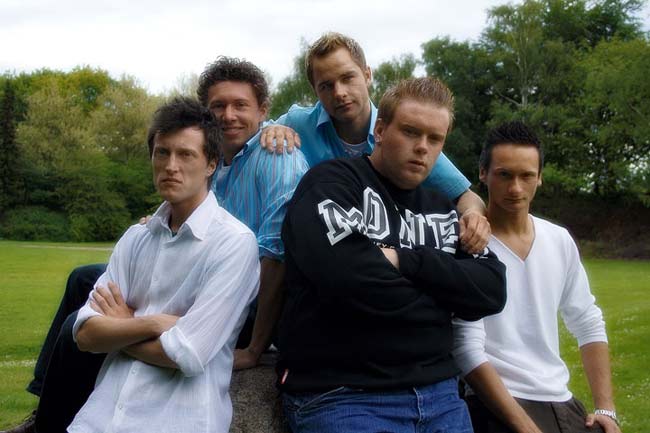Man-Of-Steel Mentality Helps Guys Heal Faster

He doesn't ask for directions after repeatedly taking wrong turns, and when he's hurt you'd never know it.
The stereotypical "tough guy" or "real man" rarely asks for help or shows signs of weakness, because then he wouldn't be a guy, right?
While many scientists have considered these masculine tendencies to be barriers to health and recovery, a small study of about 50 men suggests the opposite. The man-of-steel mentality, often associated with military men and those in other high-risk occupations, can boost and speed up a guy's recovery from a serious and/or traumatic injury possibly.
"It has long been assumed that men are not as concerned and don't take as good of care of their health," said lead study author Glenn Good of the University of Missouri, Columbia, "but what we're seeing here is that the same ideas that led to their injuries may actually encourage their recovery."
The annual incidence of traumatic brain injuries in the United States is greater than that of all cancers, Good writes in his study, and men account for three-quarters of such injuries. The number will increase if the Iraq war continues, he said.
Manly scale
Good and his colleagues examined a group of middle-aged rural white men who had experienced traumatic brain and spinal cord injuries. The scientists state that traumatic brain injury is the most common injury experienced by U.S. troops serving in Iraq.
Sign up for the Live Science daily newsletter now
Get the world’s most fascinating discoveries delivered straight to your inbox.
The participants completed questionnaires that measured the degree to which they bought into masculine norms, such as physical strength, sexual performance, independence and successful career achievement.
They also answered questions about how attached they were to rigid gender roles. Each man rated statements from 1 (strongly agree) to 6 (strongly disagree), including:
- I strive to be more successful than others.
- I have difficulty telling others I care about them.
- Affection with other men makes me tense.
- My needs for work or study keep me from my family or leisure more than I would like.
Good and bad
The study found that increased masculinity had some negative effects on the recovery of "manly men." The participants who believed it was appropriate to hold in their emotions, be self-reliant and have power over women had less favorable views toward seeking psychological help. This "I can take care of myself" attitude could be detrimental to already injured men.
The researchers also found that men who had strongly believed in male dominance over women were less satisfied with their lives.?
But, men who focused on their careers, success, power and competition reported better relations in their community. These same participants showed greater improvement a year after their hospitalization.
Perhaps, the scientists report, an inner narrative is the engine behind the boost in health. For example, a brawny boy might think, "Yeah there are tough challenges, but nothing will stop me from reaching my goal," the scientists state in a report of this study published in a recent issue of the journal Psychology of Men and Masculinity.
Even so, the resistance to psychological help concerned the scientists. "The immediate message here is to encourage psychotherapy along with traditional methods of healing," Good said. Therapists trying to help men recover from serious injuries could encourage men's masculine tendency to seek success but discourage them from believing it's appropriate to exert power over women, he wrote. ?
"This study also can shed some light on what the wounded soldiers from Iraq may be facing," Good said, in a prepared statement. "The war in Iraq is the first in which such a large number of soldiers are surviving injuries that would once have been fatal," he said, "and we as a nation are going to be living with their care for a while."
- Top 10 Mysteries of the Mind
- The Biggest Popular Myths in Science
- Men and Women Really Do Think Differently
- Body Quiz 1: The Parts List
- All About the Mind
Jeanna Bryner is managing editor of Scientific American. Previously she was editor in chief of Live Science and, prior to that, an editor at Scholastic's Science World magazine. Bryner has an English degree from Salisbury University, a master's degree in biogeochemistry and environmental sciences from the University of Maryland and a graduate science journalism degree from New York University. She has worked as a biologist in Florida, where she monitored wetlands and did field surveys for endangered species, including the gorgeous Florida Scrub Jay. She also received an ocean sciences journalism fellowship from the Woods Hole Oceanographic Institution. She is a firm believer that science is for everyone and that just about everything can be viewed through the lens of science.









